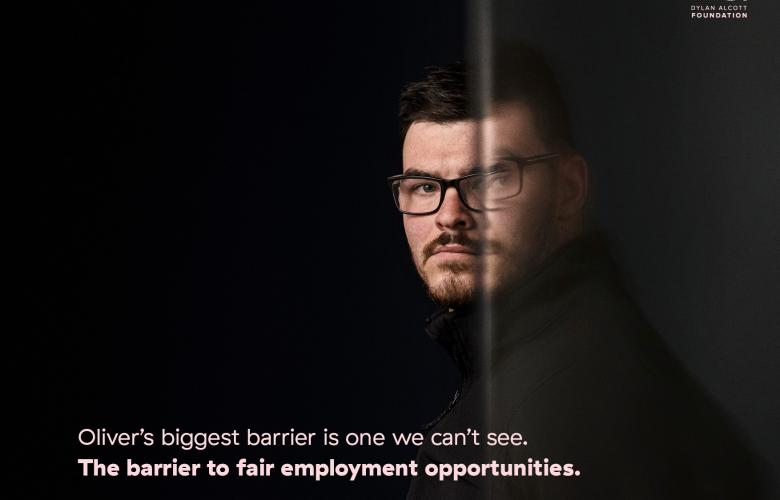A new behaviour change initiative is asking Australians to remove the visible and invisible barriers that prevent people with disability finding work. Only 54 per cent of people with disability have employment, with little to no initiatives in place to change this.
Launched by The Dylan Alcott Foundation, the Remove the barrier campaign aims to reduce unemployment among people with disabilities, addressing a problem facing one in five Australians, 4.3 million people, living with a disability.
The charitable organisation founded by Paralympic gold medallist and 9 x grand-slam tennis champion, radio host, TV presenter and disability advocate, Dylan Alcott, already has Nike, ANZ, and NEC throwing their support behind its initiative.
As the campaign highlights, people with disabilities spend their whole lives overcoming barriers, but there’s one they can’t get past, work their way around or find a solution to without everyone’s help – getting a job.
Dylan Alcott explains, “When people with disability look for work, it’s often what we don’t see that is the biggest barrier – that of unconscious bias. This invisible barrier is at the core of the campaign and is what The Dylan Alcott Foundation and the young people with disability involved in the campaign are asking businesses and individuals to remove.”
“The Dylan Alcott Foundation decided it was time to raise awareness of unemployment among people with disability and change perceptions of what they can achieve in the workplace.”
Some organisations in Australia are embracing disability, as Shayne Elliott, CEO at ANZ explains: “At ANZ, our purpose is to shape a world where people and communities thrive. Communities thrive when everyone has opportunity.”
“Our role is to provide opportunity through employment and ensure our products and services are inclusive and enable every member of our communities to participate and maximise their potential. We know there is still work to be done to fully include people with disability in the workplace, so we’re pleased to support The Dylan Alcott Foundation in this important campaign.”
Nike is equally supportive. Nike Pacific General Manager, Ashley Reade, said: “We are excited to partner with The Dylan Alcott Foundation. We are dedicated supporters of Dylan on the court and have enjoyed celebrating the incredible and inspiring success of Dylan as an athlete. We are delighted to extend our support for Dylan off the court, for this important initiative which champions what Nike stands for; equality and inclusion.”
For The Dylan Alcott Foundation, the support of ANZ, Nike and other companies is just the beginning.
“I hope ‘Remove the barrier’ sparks important conversations about disability inclusion in boardrooms, shop floors and offices around the country,” Dylan said.
“Regardless of the fact that people with disability deserve the same rights as able bodied people, disability inclusion is simply good business.”
In Australia, 66% of those that do employ people with disability have experienced clear benefits including strengthening workplace morale, improved skill set, greater customer satisfaction and improved productivity.
Evidence has shown people with disability tend to take fewer days off, take less sick leave and stay in jobs for longer than other workers.
The Dylan Alcott Foundation, in collaboration with BWM Dentsu has launched a powerful video that follows three people overcoming physical and mental barriers as they prepare for their working day.
One of the stars of the campaign is 24-year-old, university-educated, Oliver Hunter who uses a wheelchair and has encountered unconscious bias, lack of opportunities and accessibility issues in his hunt for fulfilling work.
“I’d happily go into an interview and get knocked back for my lack of skills, but I’ve always felt that my disability has been the sole reason for employers turning me down,” Oliver said.
“People with disability are fully capable of doing an office job, a supermarket or a retail shop. Just give us a go. Let us have a crack and you’ll see what we’re capable of.”
More from The Business Conversation:
Entrepreneurship education empowering WA’s Deaf community
Data#3 partners with Lifeline Australia as part of commitment to the community
Catalyst launches #BiasCorrect Campaign to tackle unconscious gender bias in the workplace




